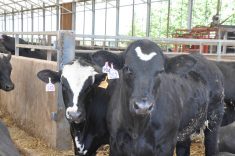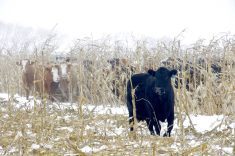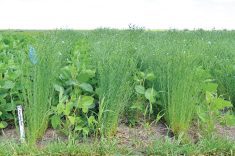A coalition of 17 major farm groups is opposing a bill that would tie the decisions of lending institutions to Canada’s climate goals.
The Agriculture Carbon Alliance, which pushes for recognition of farm sustainability, argues that Bill S-243 could lead to higher borrowing costs and more red tape for farmers.
Why it matters: The push for farm sustainability, and the red tape needed to prove it, are sore spots for agriculture.
Read Also

Best before doesn’t mean bad after
Best before dates are not expiry dates, and the confusion often leads to plenty of food waste.
Bill S-243, the Enacting Climate Commitments Act, is a private members’ bill sponsored by Quebec senator Rosa Galvez. It was first read in the Senate in March 2022.
If enacted, the bill would require banks and federal financial institutions to align their decisions with Canada’s climate commitments, like the Paris Agreement. Banks would also face reporting rules on their climate-related goals and actions.
Institutions would have to increase the risk weight considered for certain types of projects, such as fossil fuel infrastructure or fossil fuel-related projects, therefore raising the cost of lending for those projects.
It would make borrowing so expensive that it would create a “de facto ban on lending to the energy sector,” Darren Hannah, senior vice-president of the Canadian Bankers Association, testified before the Senate committee for banking, commerce and the economy in November 2023.
A report Galvez published in 2023 put the bill’s crosshairs on oil and gas investments. The report noted that RBC was the largest financier of oil and gas worldwide in 2022.
Advocacy group Rainforest Action Network released a 2023 report with that same claim. Scotiabank and TD also cracked the group’s “dirty dozen” companies listed in the document.
Ag impacts
Agriculture is explicitly mentioned once in Bill S-243. In the definitions of what constitutes emissions, it includes those from agriculture or land-use change. Farm Credit Canada is among the potentially affected lenders.
The agriculture sector is concerned that, if passed, the bill will undermine access to farm loans, Agriculture Carbon Alliance co-chair Dave Carey told the Senate committee April 18.
This could occur through increased lending costs, because agriculture is considered an emissions-intensive industry, or through greater reporting requirements.
“Anything that makes capital more expensive right now, what with where interest rates are, where prime is, is a concern for farmers,” Carey said.
Cathy Jo Noble, vice-president of policy and government relations with the National Cattle Feeder’s Association, also appeared before the committee. She told senators that the last thing farmers need is more paperwork.
“This is just one more thing on the pile that is starting to reach a limit for Canadian farmers.”
Noble said the bill should not proceed in isolation. The Canadian Sustainability Standards Board is already adapting international sustainability disclosure standards for use in Canada. The Agricultural Carbon Alliance is involved in that process. That work is a more holistic approach to sustainability disclosure, Noble said.
Carey said his group is not sure what the full impacts would be, but fears unintended consequences if the bill passes.
Banks are not keen on it either. CBA representatives told the committee that banks already have climate and sustainability goals and report to several governing bodies about their progress.
“This legislation, while well intended, would work against the progress that is under way both internationally and domestically to tackle climate change in a phased manner, complicates an already crowded space in the area of reporting and sets a dangerous precedent by legislating risk weights,” Hannah said.


















